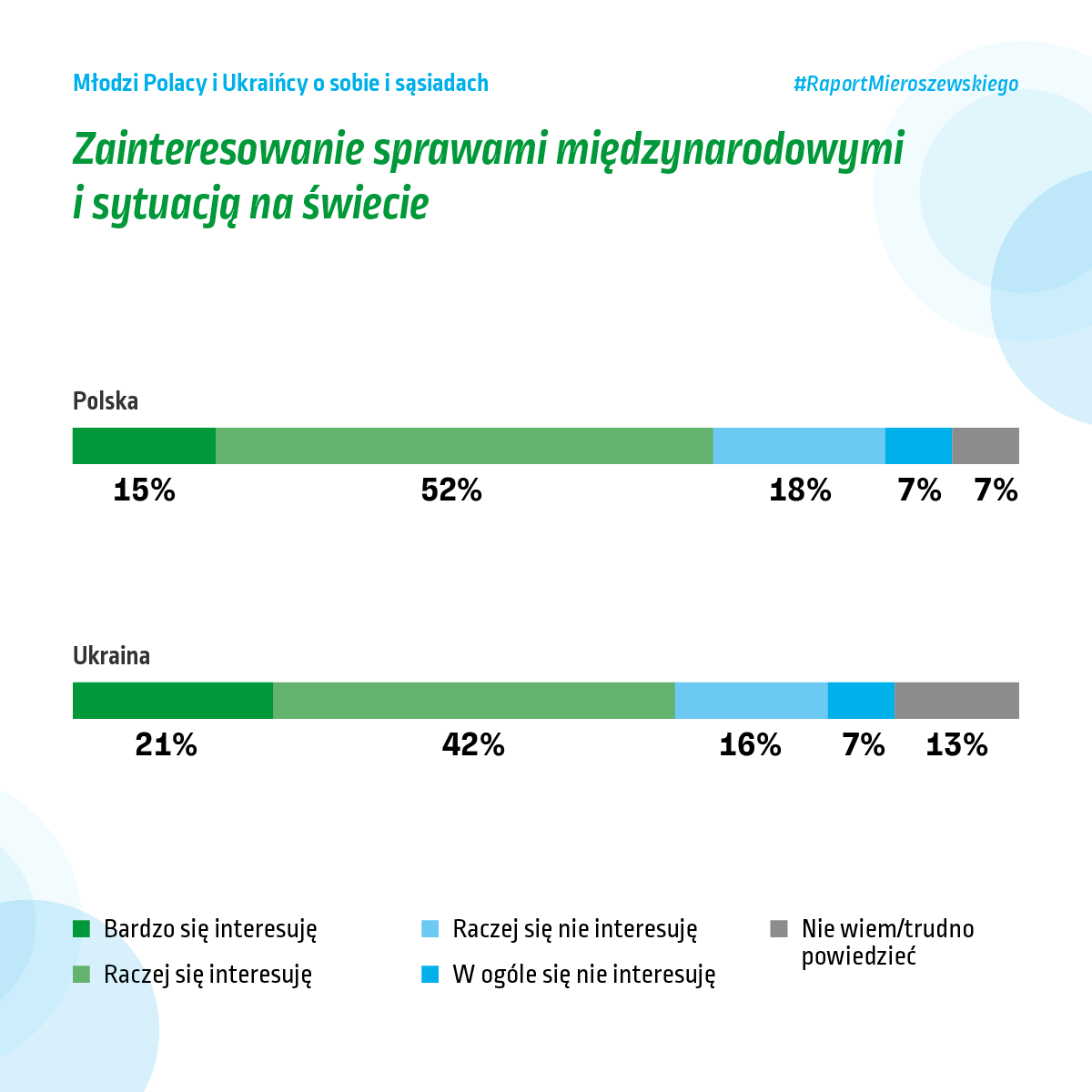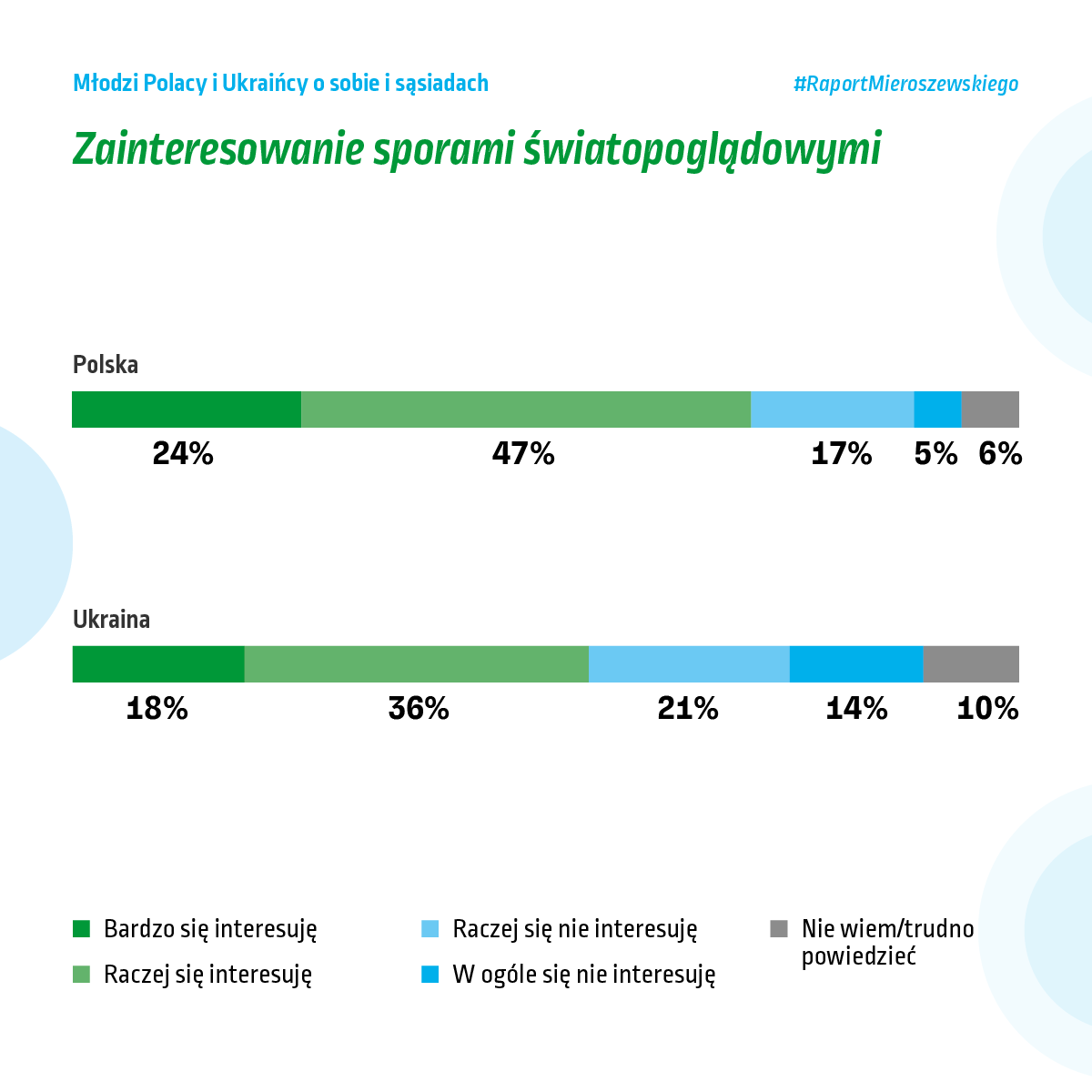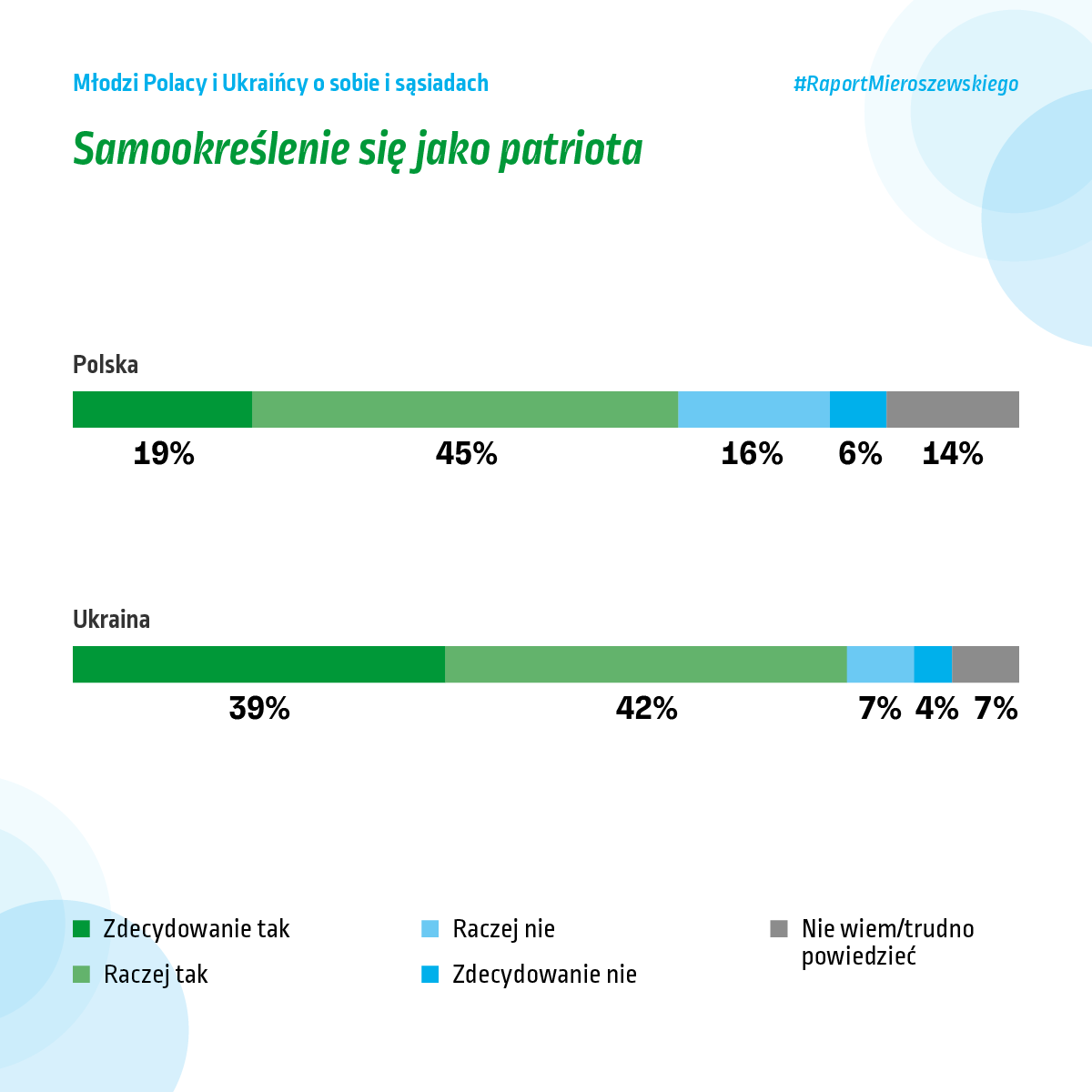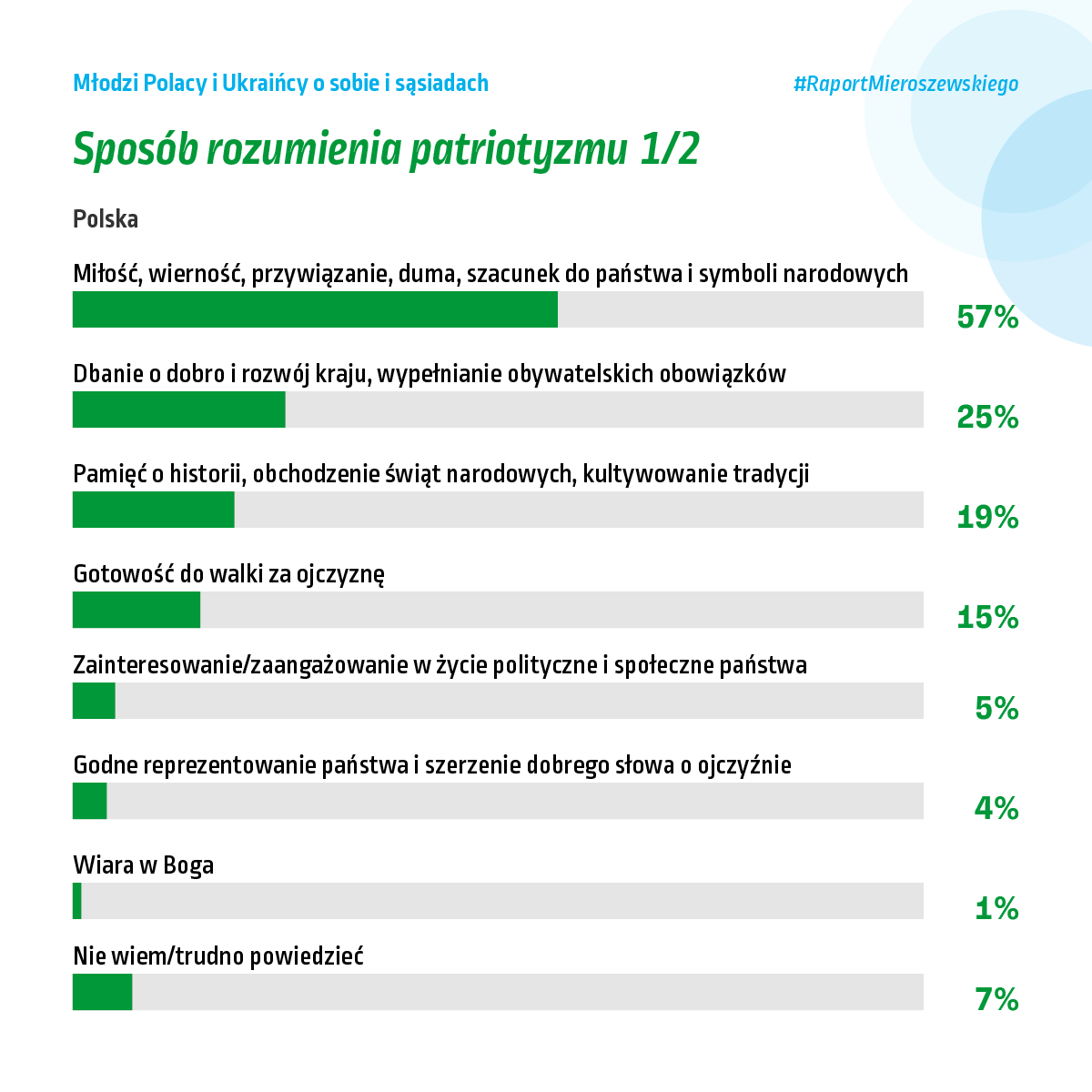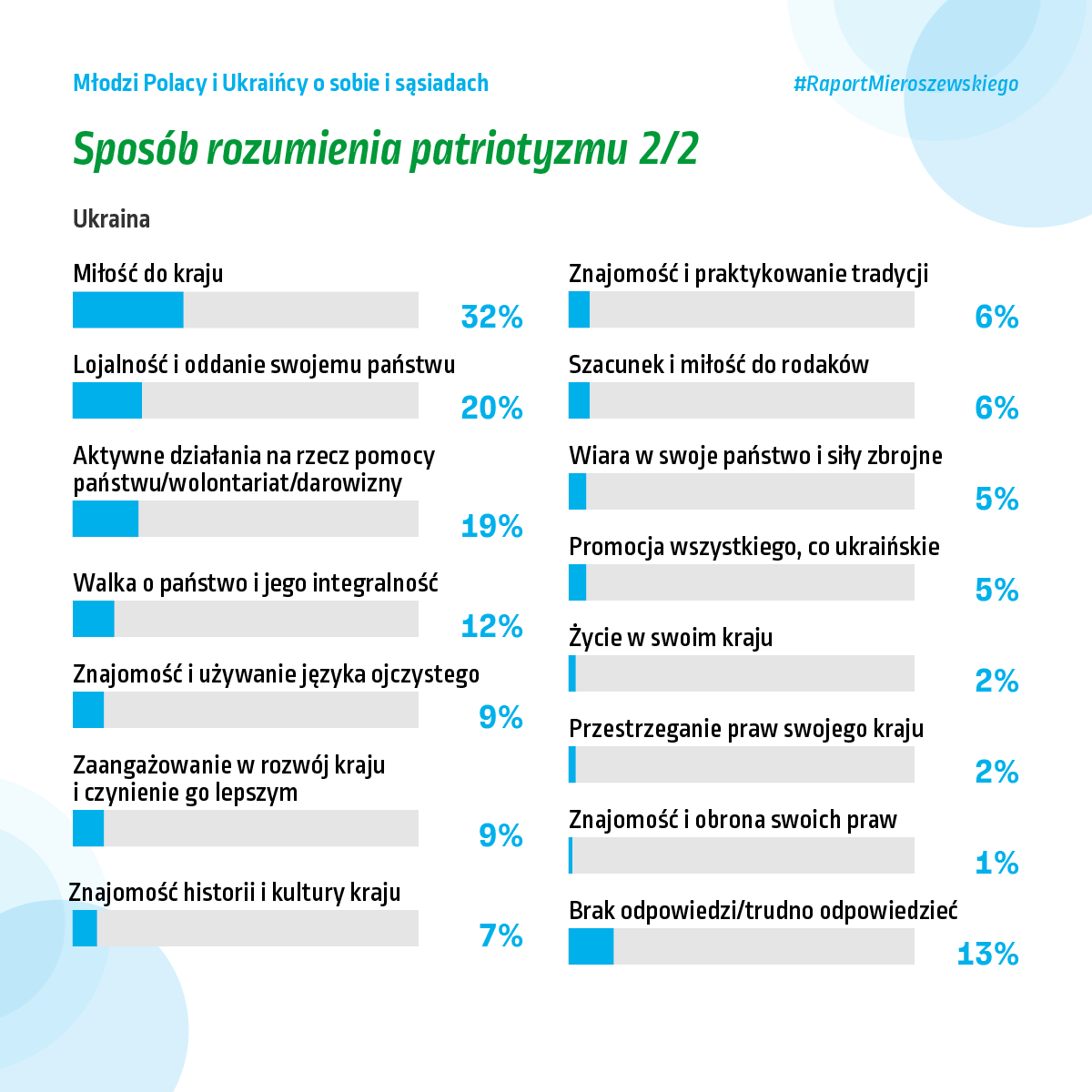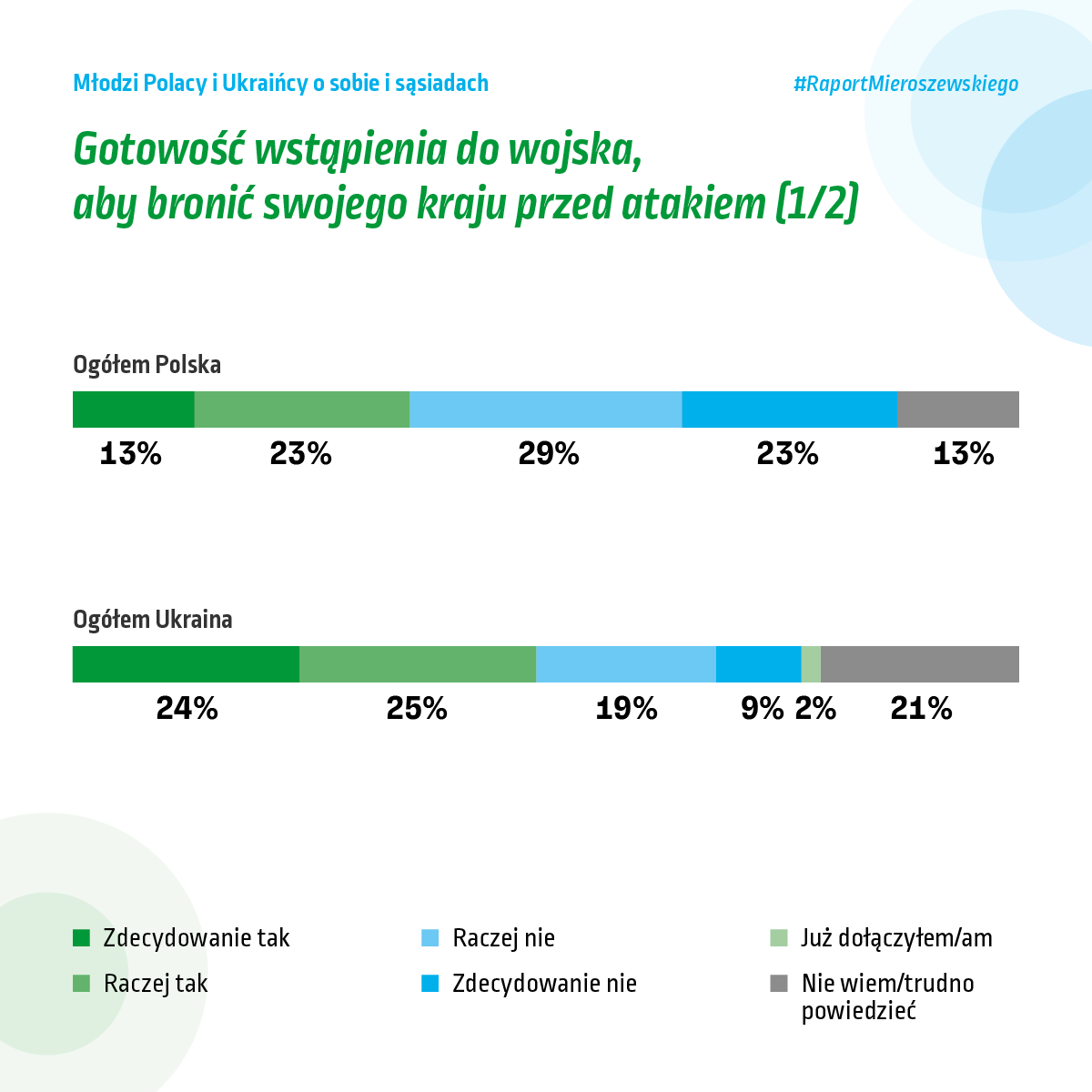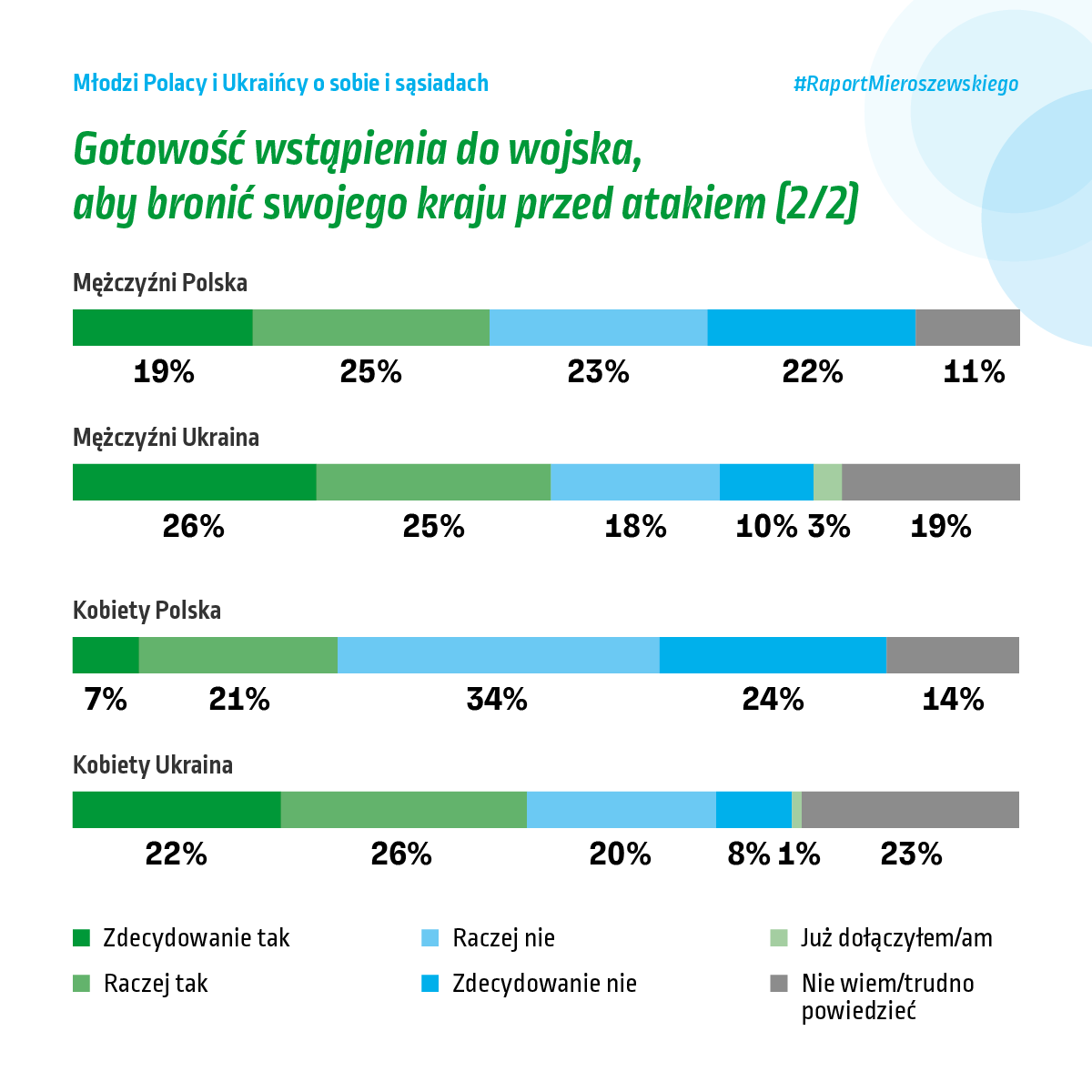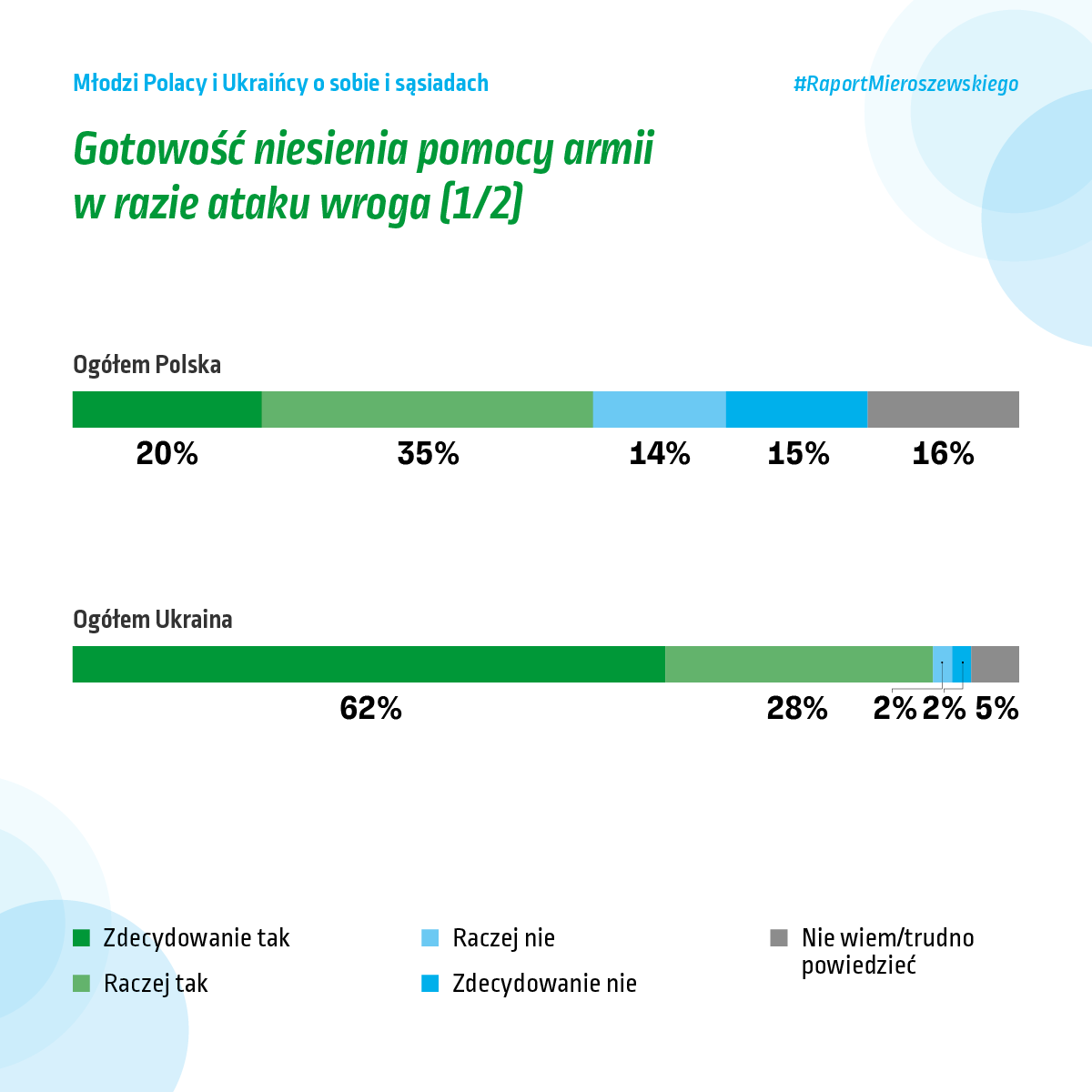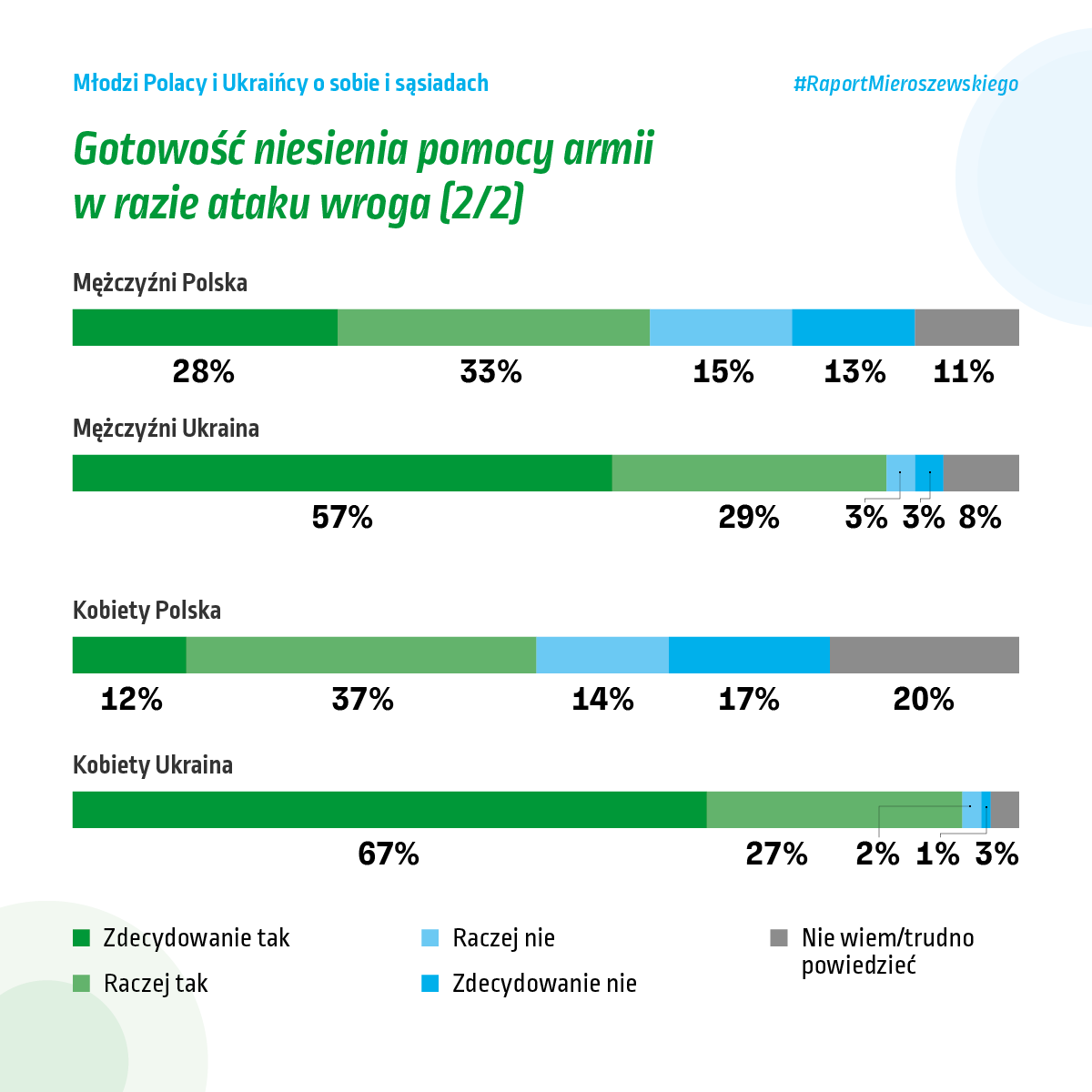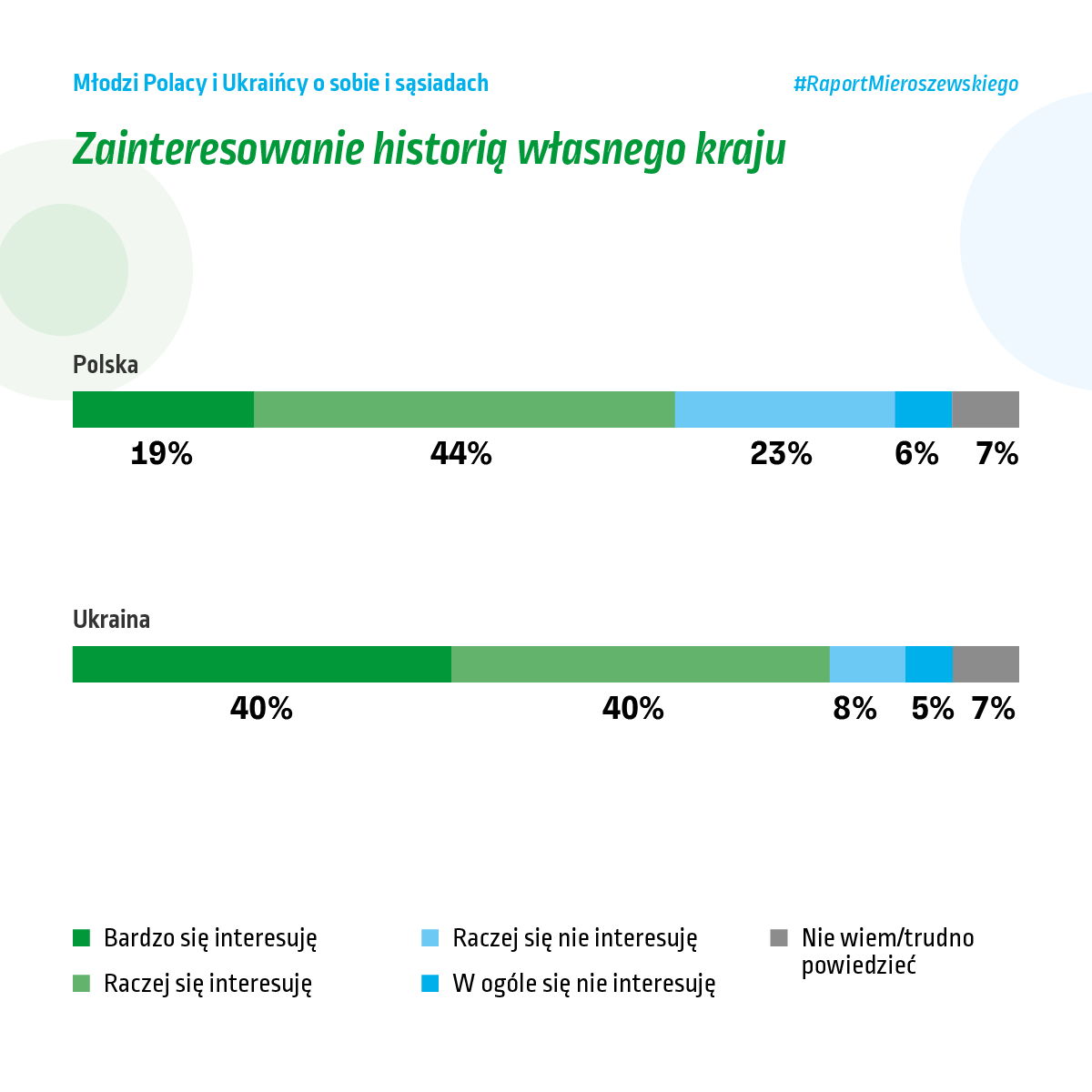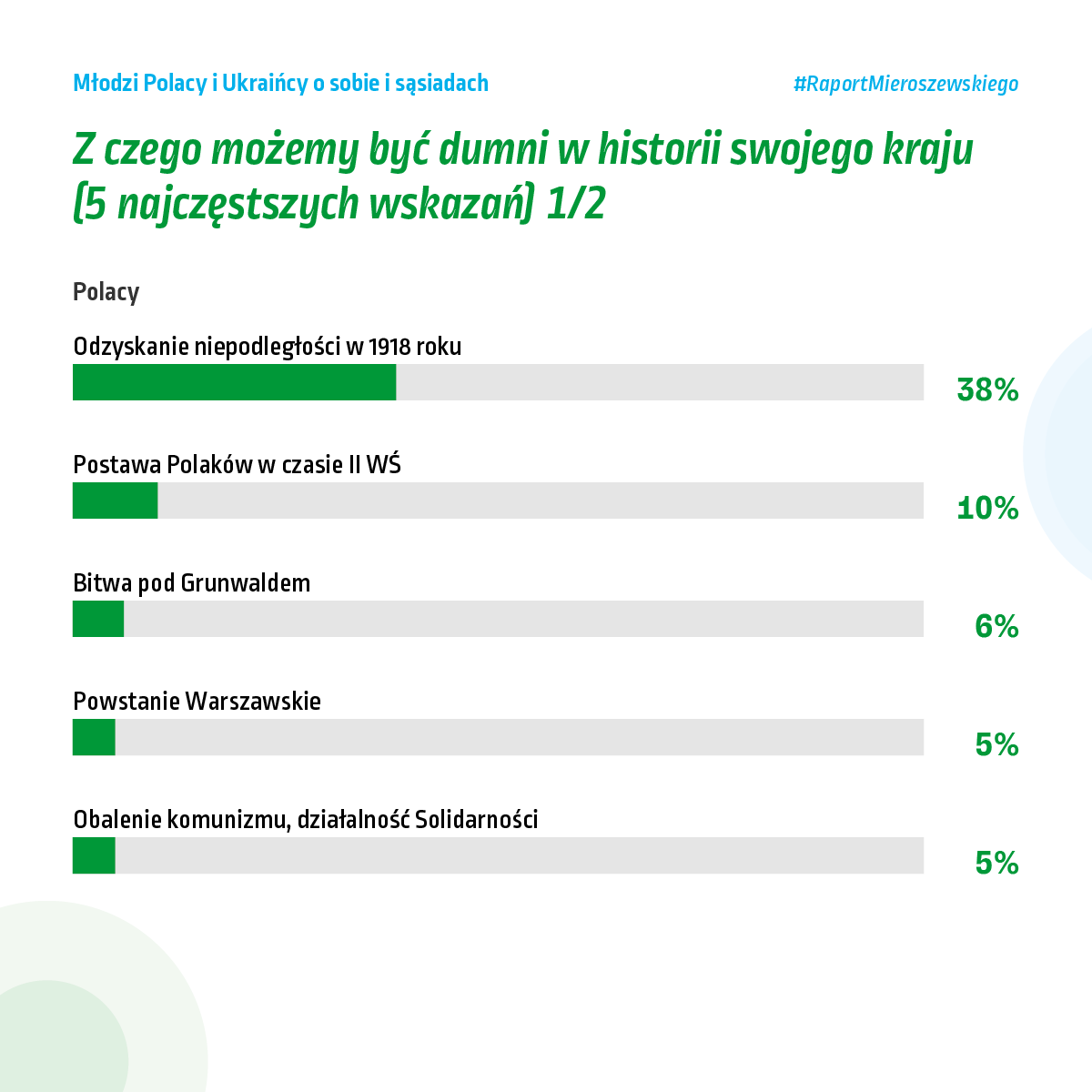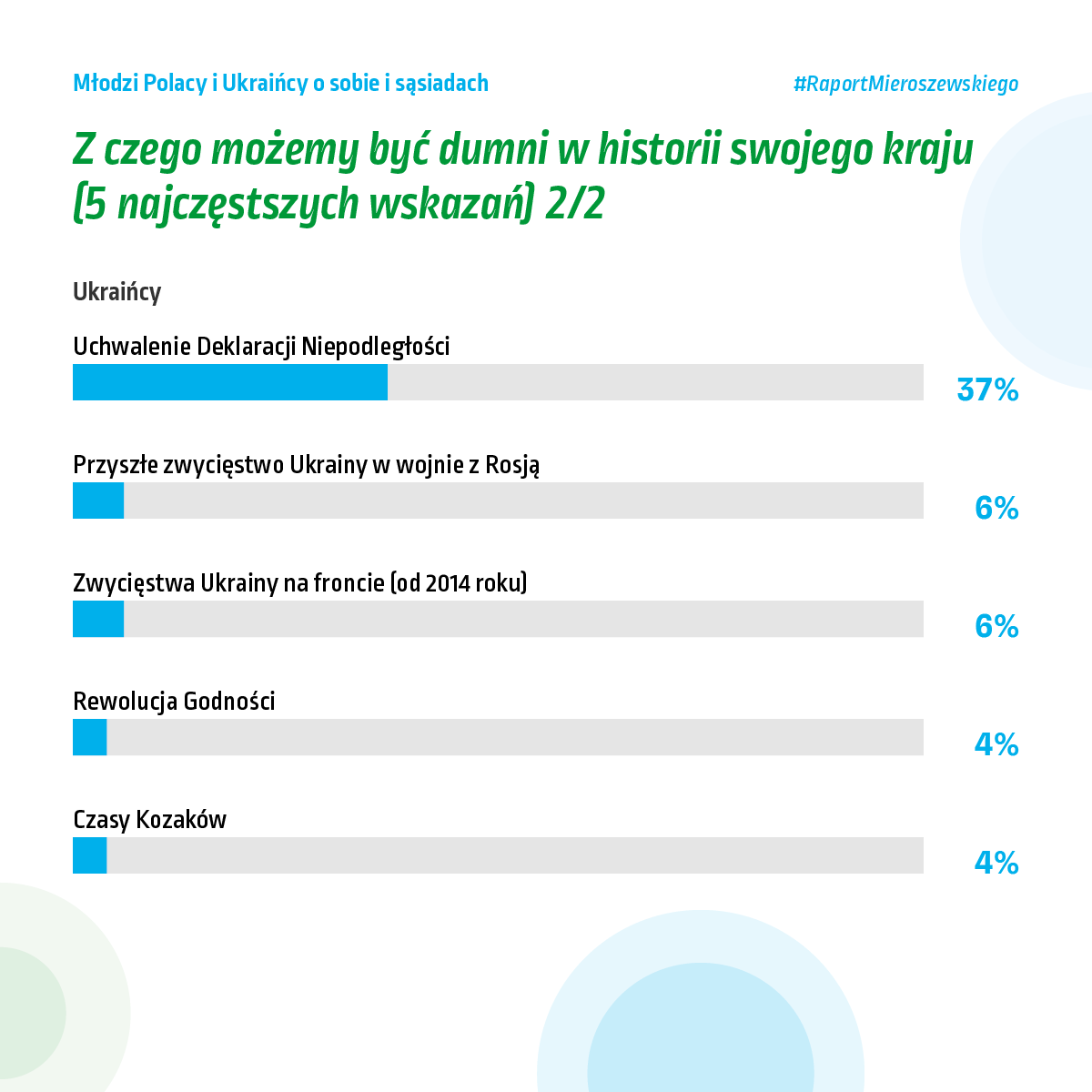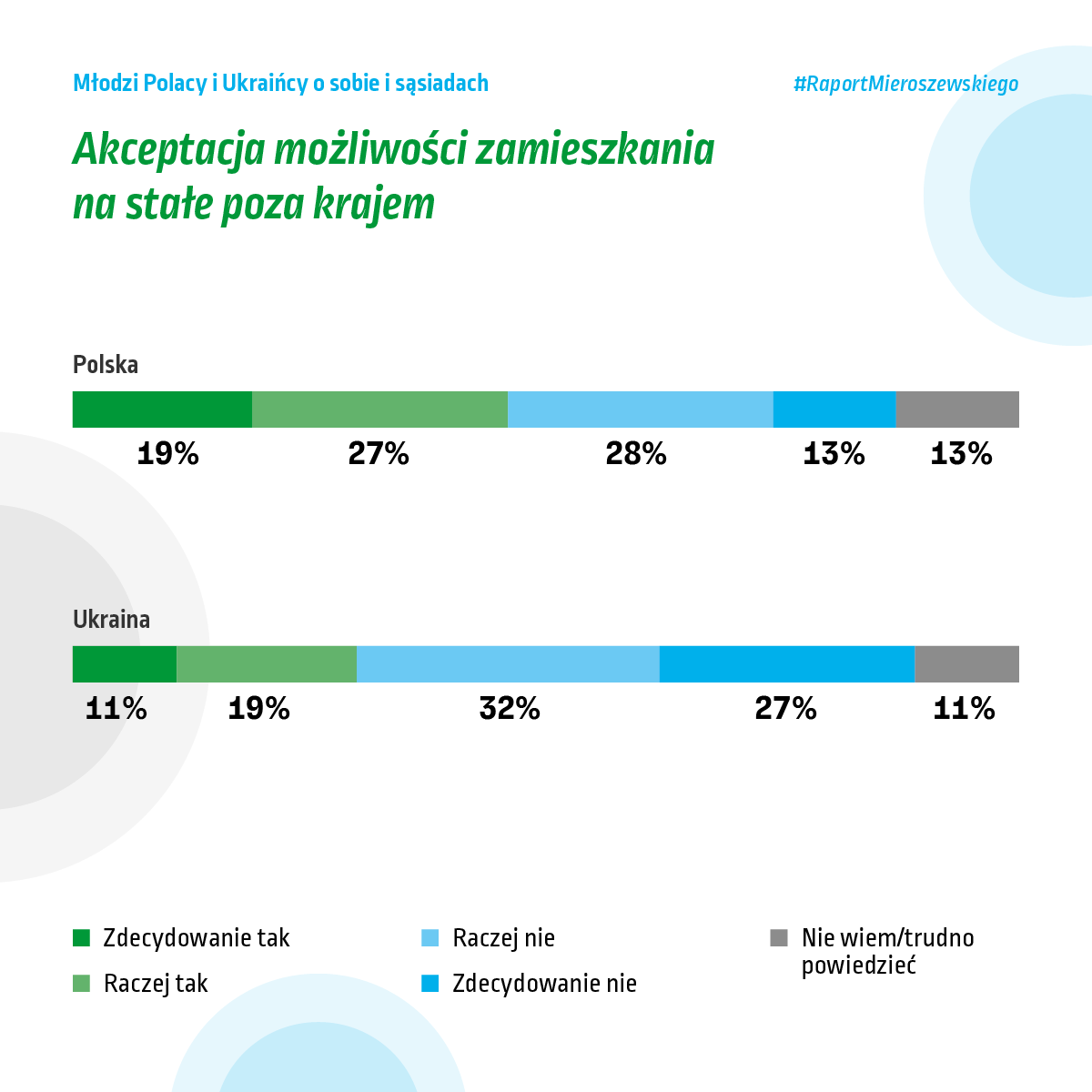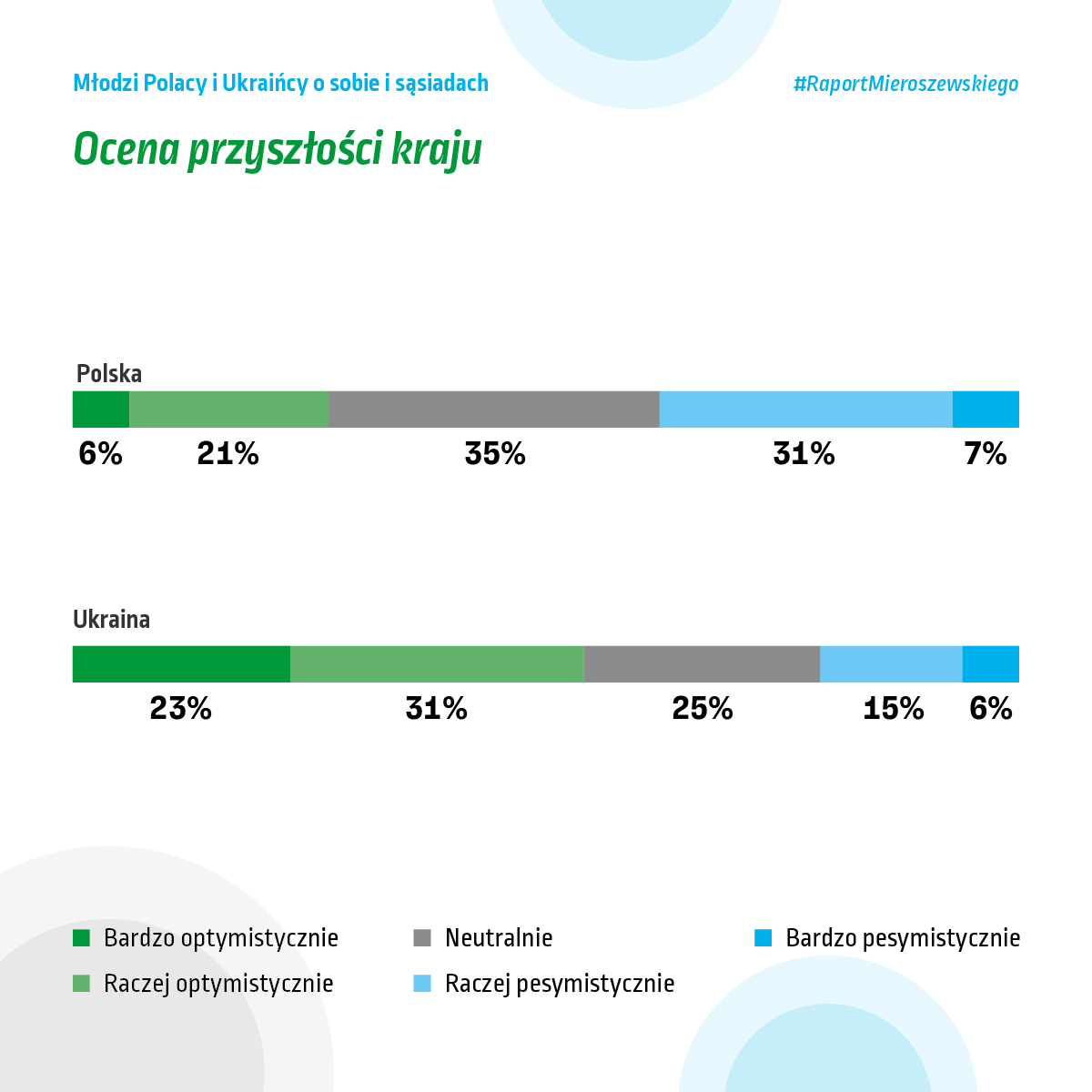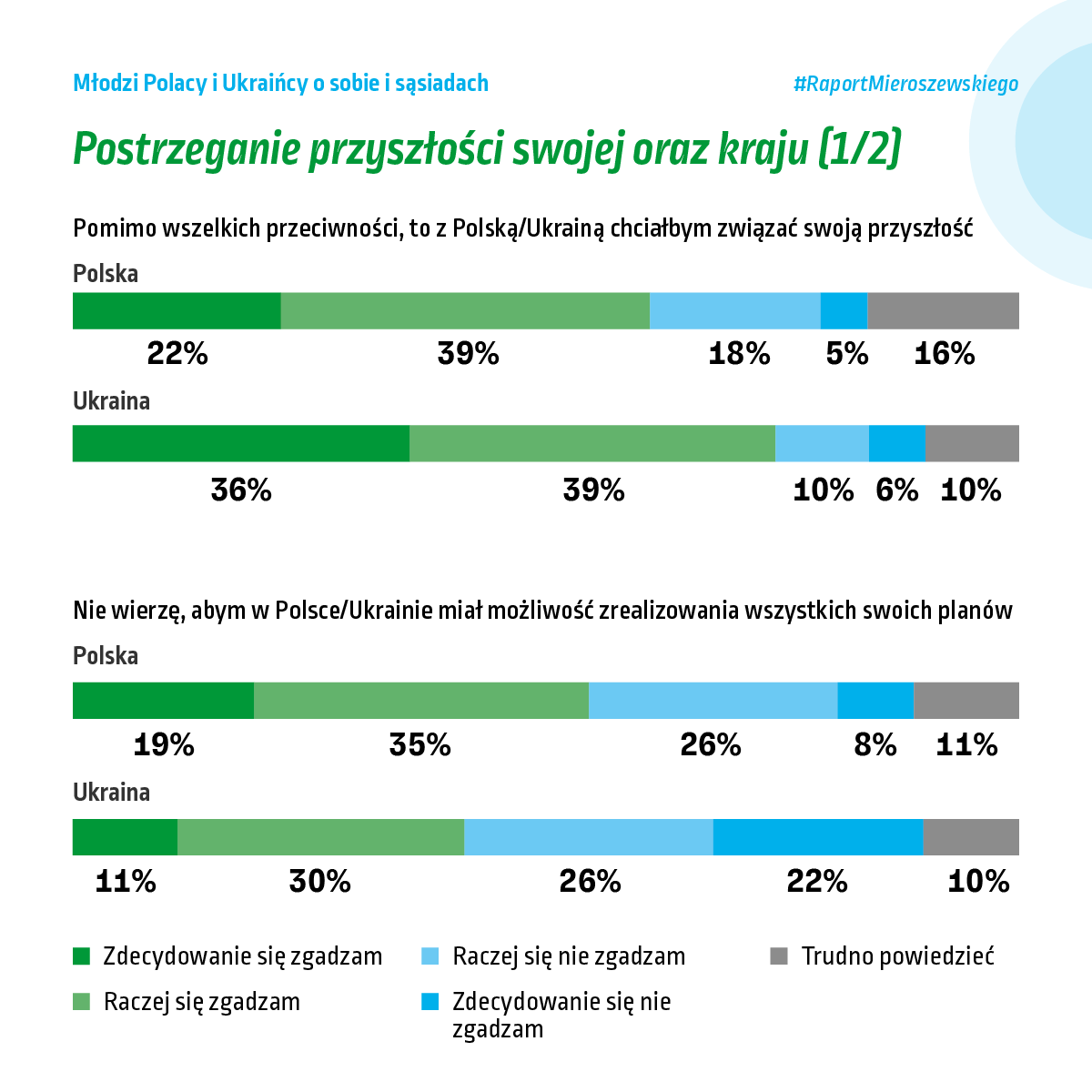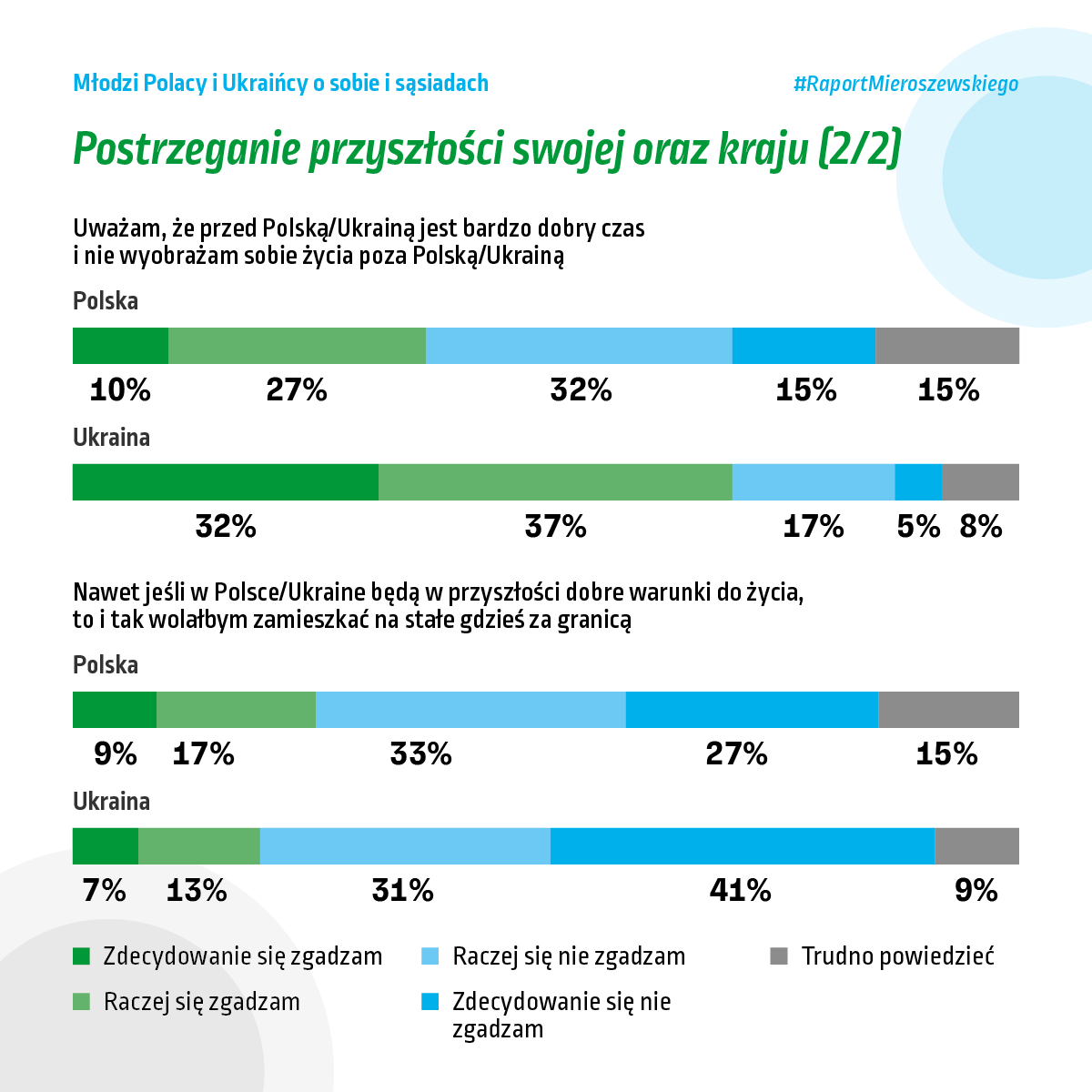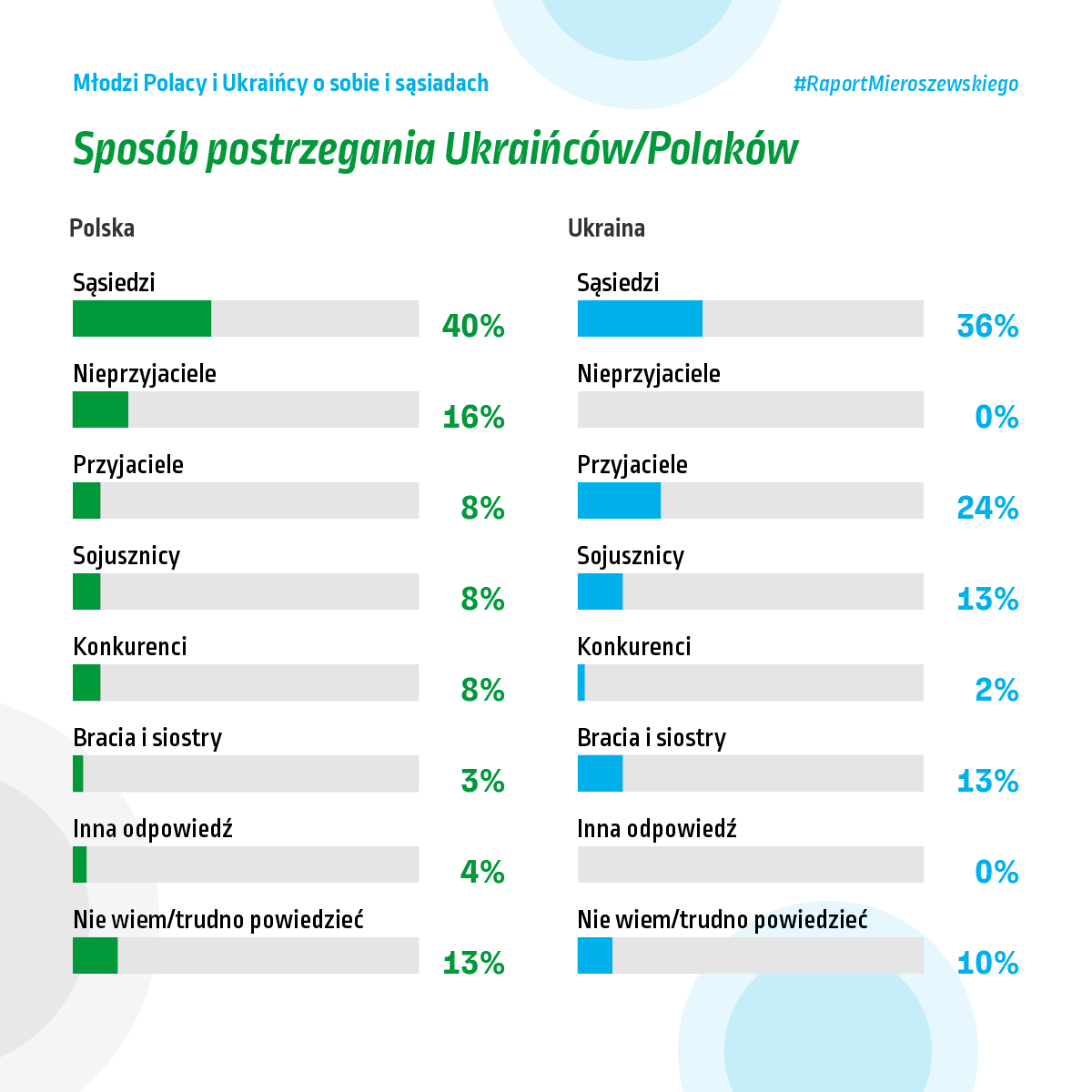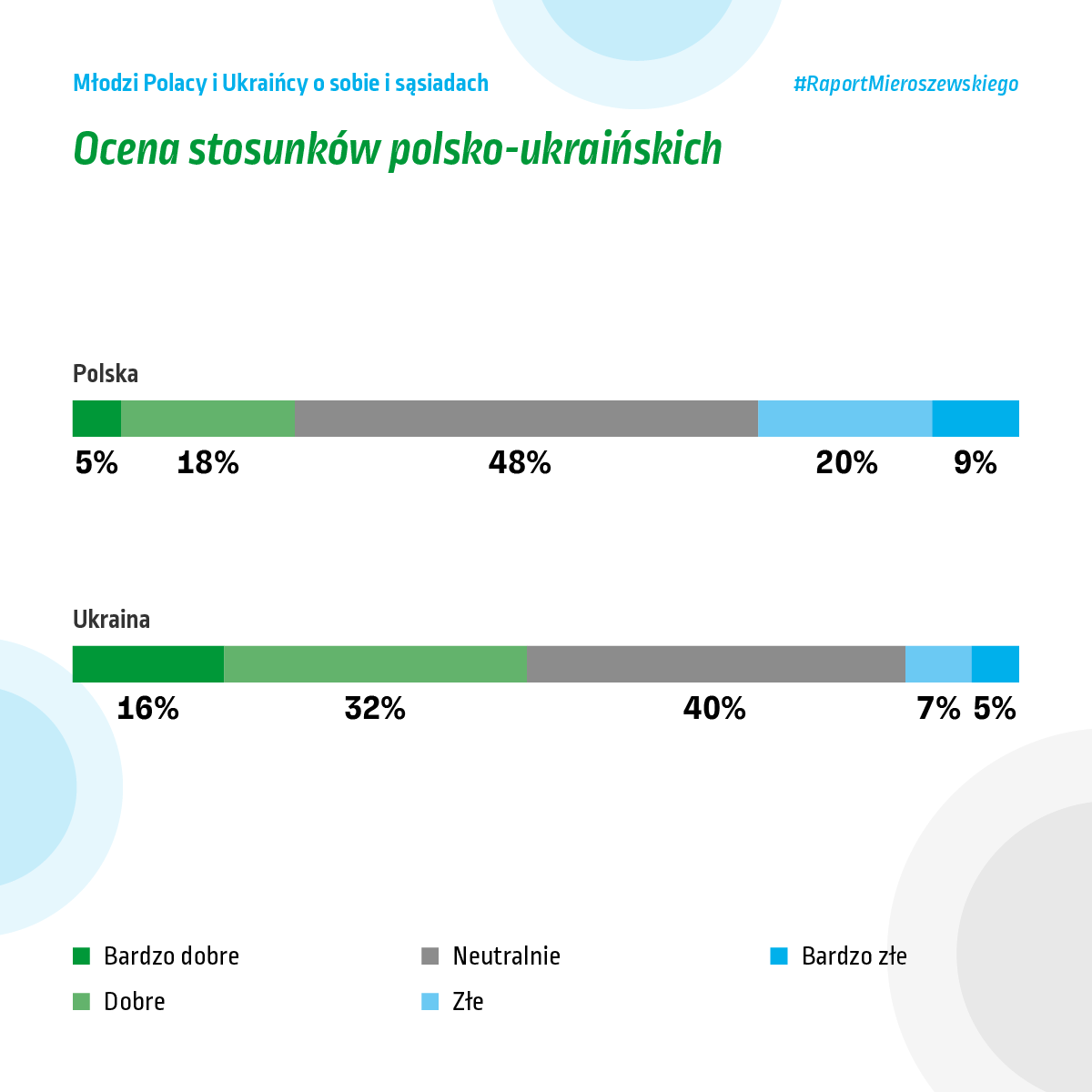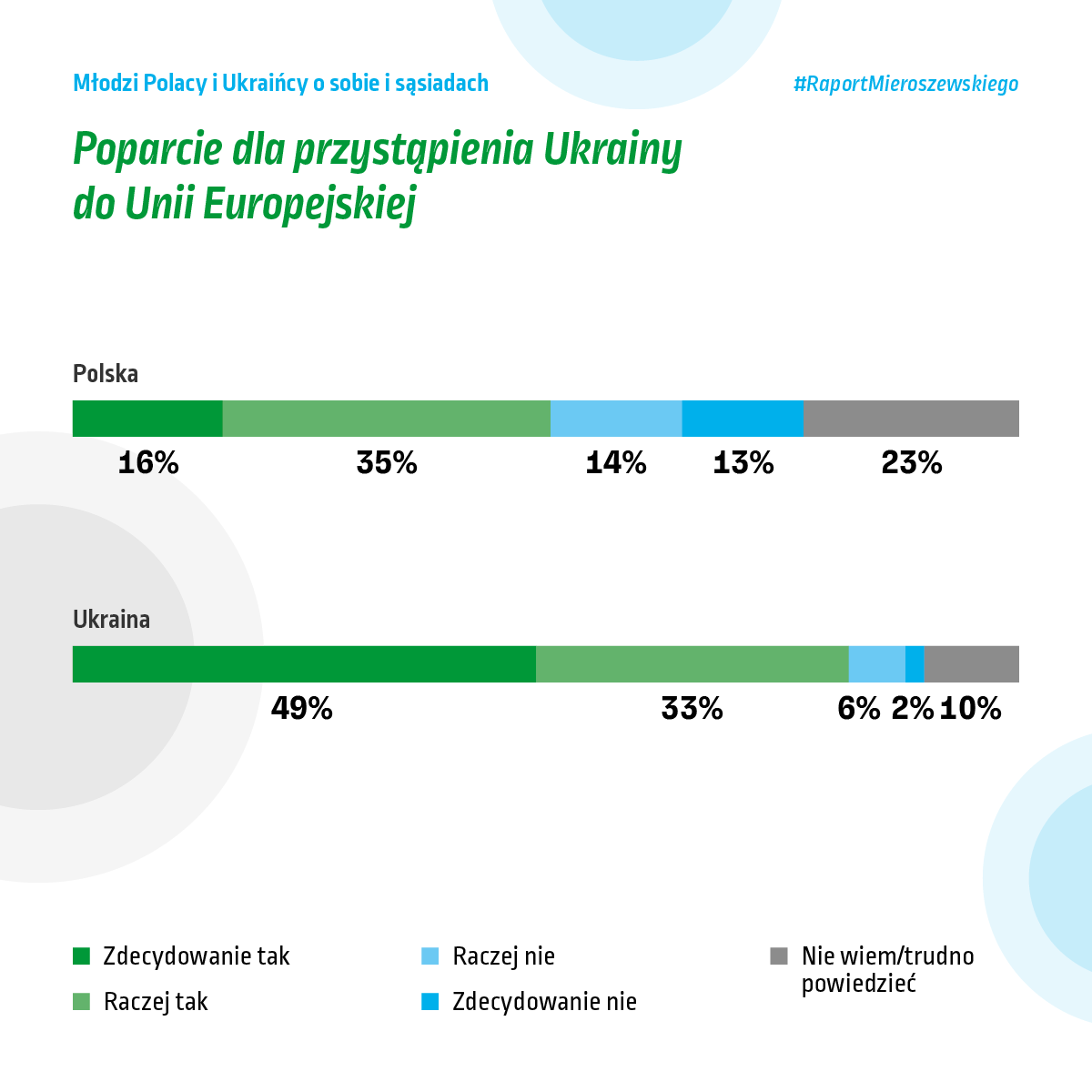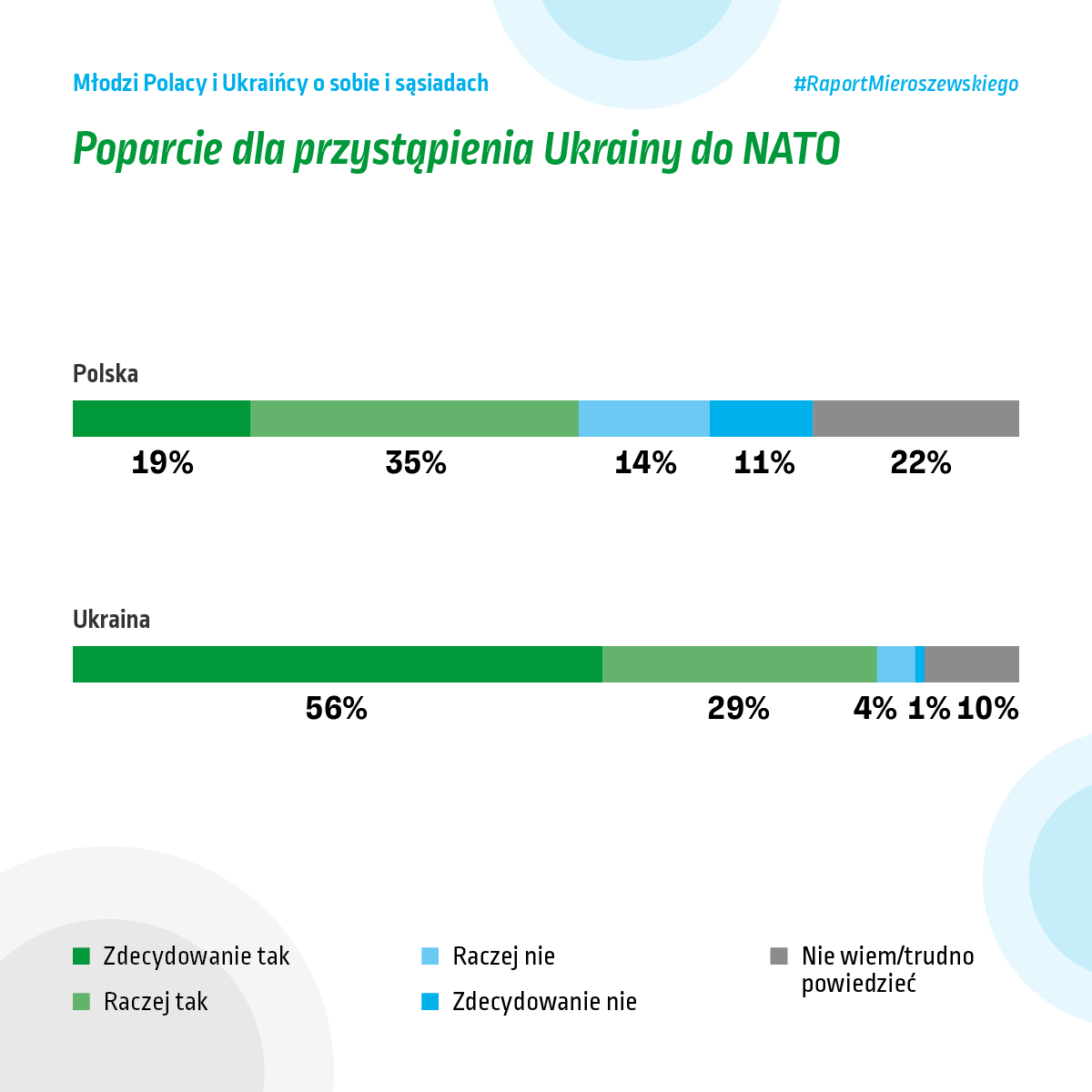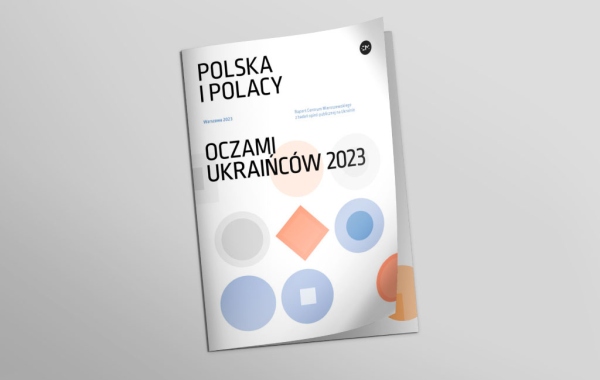Stability vs. Insecurity
The Mieroszewski Centre presents the results of a comprehensive survey of the opinions of Polish and Ukrainian youth. The report ‘Stability vs. Insecurity’ shows how young people in Poland and Ukraine perceive each other, what aspirations and fears they have and what values are most important to them in the face of a dynamically changing reality.
The survey covered young people aged 18-26 from both countries. Respondents had the opportunity to express their views on topics such as a sense of security, patriotism, the future at home and abroad, as well as Ukraine's integration into the European Union and NATO. The results of the survey provide valuable insights into how the younger generations see their future and the future of Polish-Ukrainian relations.
Understanding patriotism
Patriotism among young Poles manifests itself as a complex mosaic of values such as love, loyalty and national pride, encompassing concern for the development of the country and society, and the cultivation of history. For many, patriotism also means a readiness to defend the homeland. For young Ukrainians, on the other hand, patriotism means strong feelings of loyalty to the country, active assistance in its development and respect for the mother tongue. They also note the commercialisation and manipulation of patriotism, expressing concern about its transformation into a political tool. Some see the need for nationalism, not just patriotism, as a quest for national unity and the protection of Ukraine's cultural identity.
Readiness for personal involvement from a situation of aggression
Patriotism in a situation of external aggression often translates into a readiness to make sacrifices in defence of the homeland. Research shows that 50% of young Ukrainians declare a willingness to join the army, compared to 36% in Poland. Among women, this readiness is much lower in Poland (28%) than in Ukraine, where it is almost 50%. Furthermore, 90% of young Ukrainians are willing to provide assistance to the army in the event of an attack, which differs by 35 percentage points from the Polish response. This assistance is often direct, and issues of corruption are a frequent complaint in the context of financial support.
Future at home or abroad?
Despite the ongoing war, 59% of young Ukrainians are not considering permanent emigration, in contrast to Poles, where a smaller number of respondents reject this possibility. The lower willingness of Ukrainians to leave is due to a deep sense of duty to a country at war. In contrast, young Poles, living in safer conditions, are less likely to feel obliged to stay. Young Ukrainians, despite the difficulties, are positive about the future of their country, which indicates their greater optimism compared to Poles. In Poland, a greater proportion of young people feel that they cannot realise their plans in the country and are considering living abroad.
Interest in national and international affairs
The different daily realities of young Poles and Ukrainians can be seen in the topics they discuss with their peers. Poles focus on everyday life, while Ukrainians often discuss politics and war. Only 12% of Poles talk about culture and hobbies, compared to 5% of Ukrainians. It is also interesting to note that young Ukrainians are 15 percentage points more likely than Poles to be interested in the politics of the country, but less concerned with worldview disputes. As for sources of information, Poles mainly use Facebook and YouTube, while Ukrainians use Telegram.
Interest in the country's history
Interest in history is much higher among young Ukrainians than Poles. As many as 80% of Ukrainians are interested in the history of their country, half of them to a significant degree. In Poland, this percentage is 17 percentage points lower. The high involvement of Ukrainians may be due to the need to understand the historical context of current events in the country. In both nations, the most frequently highlighted historical moments are those related to independence: in Poland the regaining of independence in 1918 and in Ukraine the signing of the Declaration of Independence in 1991.
Perception of neighbouring states
Poles and Ukrainians perceive Russia and Belarus as unfriendly countries. Ukrainians are more likely than Poles to consider Poland as friendly to Ukraine. Differences in perceptions of the nations are apparent: Ukrainians see Poles as the most friendly nation, while Poles are more sympathetic to Czechs, Slovaks and Lithuanians, putting Ukrainians after Germans. Ukrainians are more likely to refer to Poles as ‘friends’ or ‘brothers and sisters’, while Poles are less likely to say this about Ukrainians. In Polish-Ukrainian relations, 48% of Ukrainians have a positive view, compared to 23% of Poles; the rest of Poles have a neutral attitude. More Ukrainians than Poles have personal relations with their neighbours, which may influence the better perception of Poles by Ukrainians.
Ukraine's integration into the EU and NATO
An overwhelming majority of Ukrainians, 82% and 85% respectively, support their country's accession to the European Union and NATO, seeing it as an opportunity to strengthen security and draw closer to Western Europe. In Poland, opinions are more divided, with 51% supporting Ukraine's accession to the EU and 54% to NATO, demonstrating the differences in perception between the two nations.
Summary
However, regardless of the numerous differences revealed in the two surveys, the experience of Polish-Ukrainian contacts, acquaintanceships and friendships, as well as the strengthening of the presence of both countries and peoples in the consciousness of their neighbour, remains common. This is where the greatest potential for future relations between Poland and Ukraine should be seen.
